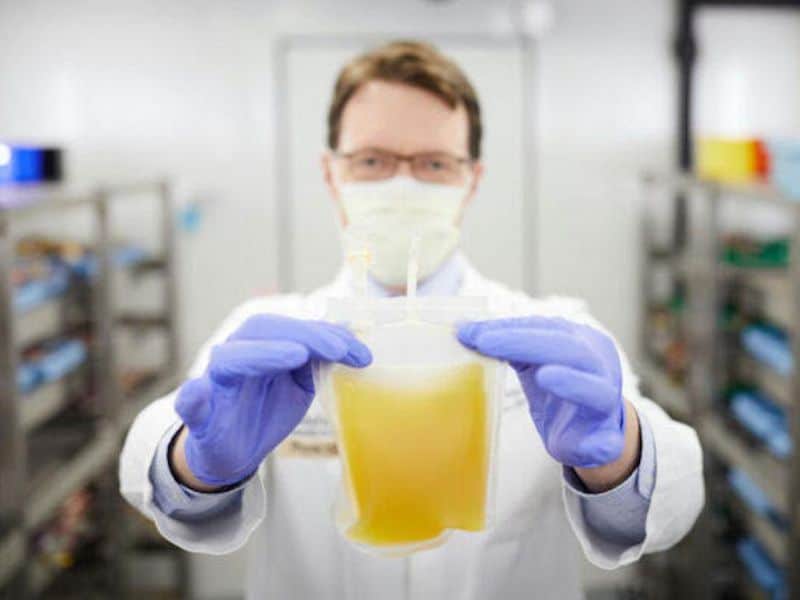THURSDAY, Oct. 14, 2021 (HealthDay News) — Among critically ill adults with COVID-19, treatment with convalescent plasma had a low likelihood of improving the number of organ support-free days, according to a study published online Oct. 4 in the Journal of the American Medical Association.
Lise J. Estcourt, M.B.B.Chir., D.Phil., and colleagues from the Writing Committee for the REMAP-CAP Investigators assessed whether two units of ABO-compatible, high-titer convalescent plasma would improve outcomes for critically ill adults with COVID-19. The analysis included 1,084 patients who received convalescent plasma and 916 patients who did not receive convalescent plasma within 48 hours of randomization.
The researchers reported that the convalescent plasma intervention was stopped after the prespecified criterion for futility was met. In the convalescent plasma group, the median number of organ support-free days (up to day 21) was zero versus three in the no convalescent plasma group. The in-hospital mortality rate was 37.3 percent and 38.4 percent, respectively. The median number of days alive and free of organ support was 14 in both groups. The posterior probability of futility (odds ratio <1.2) was 99.4 percent for the convalescent plasma group versus the no-convalescent plasma group. Treatment effects were similar across the primary outcome, as well as 11 secondary outcomes. Serious adverse events were reported in 3.0 percent of patients receiving the convalescent plasma and in 1.3 percent of patients not receiving it.
“Among the predefined subgroups, there was no evidence for a meaningful difference in the treatment effect with convalescent plasma compared with no convalescent plasma, with the exception of the small number of participants with immunodeficiency at baseline,” the authors write.
Several authors disclosed ties to the pharmaceutical industry.
Abstract/Full Text(subscription or payment may be required)
Copyright © 2021 HealthDay. All rights reserved.


